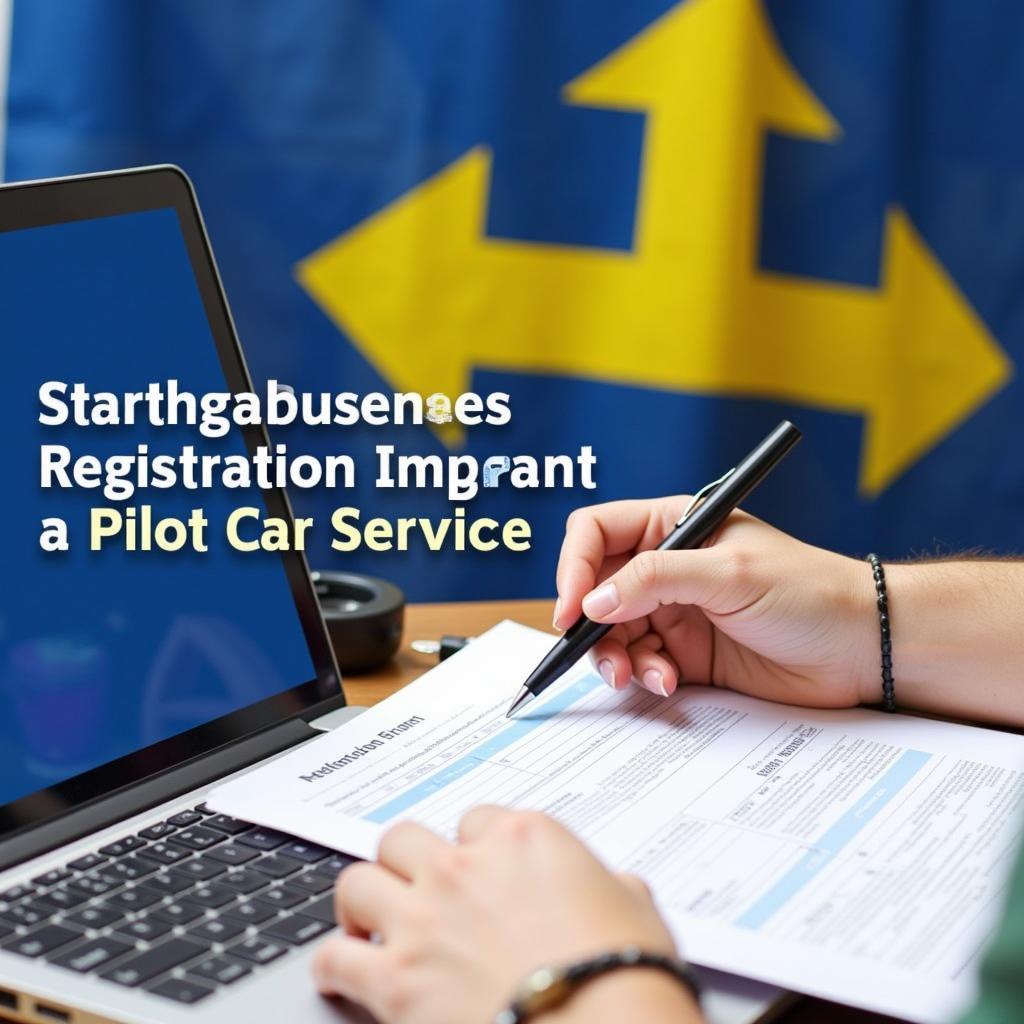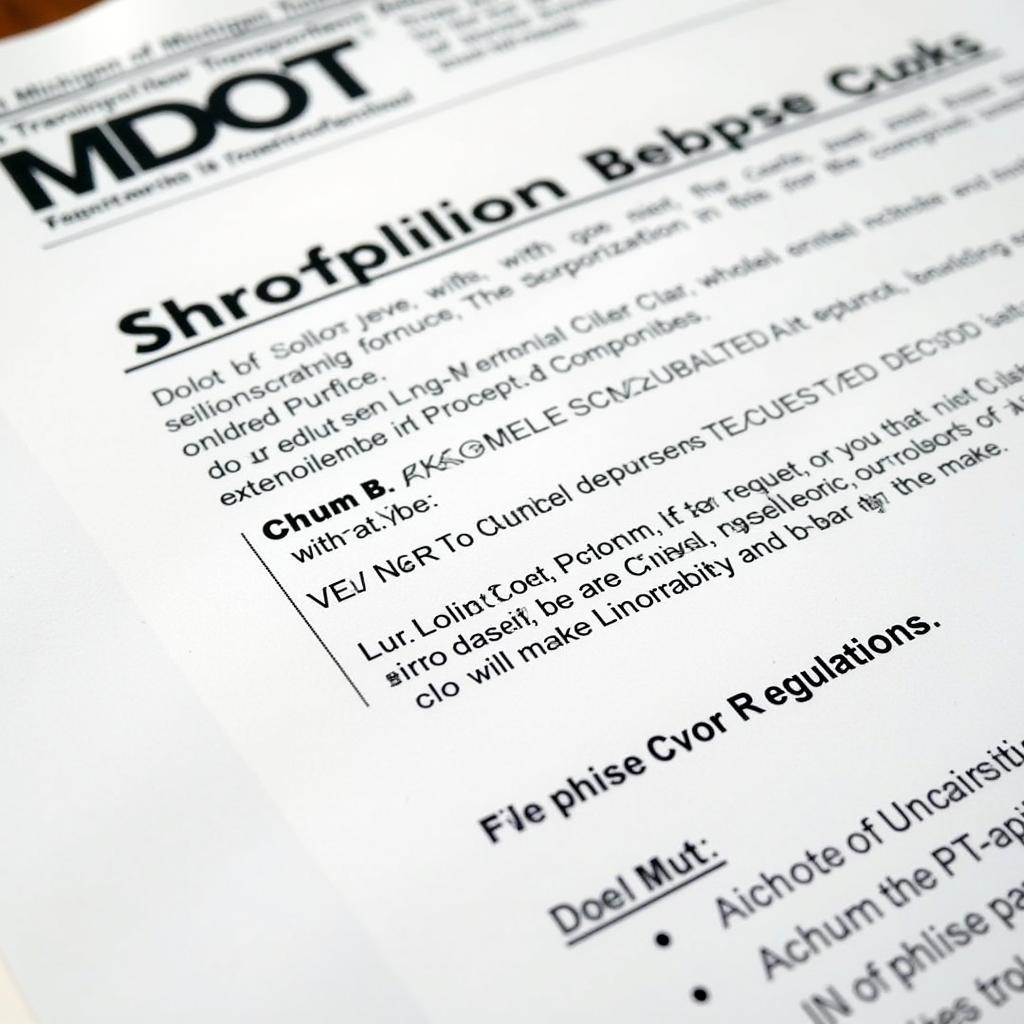How to Start a Pilot Car Service in Michigan
Starting a pilot car service in Michigan can be a rewarding venture, offering a crucial service to oversized load transportation. This guide covers the essential steps to get your pilot car business up and running in the Great Lakes State. From understanding the regulations to acquiring the necessary equipment, we’ll navigate the process together.
Understanding Michigan’s Pilot Car Regulations
Before you even think about flashing lights and oversized loads, you need to be intimately familiar with Michigan’s specific regulations for pilot car operations. This includes understanding the permit requirements for different load sizes, the required equipment for your pilot vehicle, and the specific rules of the road for escorting oversized loads. Michigan’s Department of Transportation (MDOT) website is your best friend here, providing up-to-date information on all the legal requirements. Don’t skimp on this step; a solid understanding of the regulations is crucial for a successful and legal pilot car operation.
Getting Your Business in Order
Once you’re up to speed on the regulations, it’s time to handle the business side of things. This involves registering your business with the state, obtaining the necessary permits and licenses, and setting up your business structure (sole proprietorship, LLC, etc.). You’ll also need to consider insurance – both for your vehicle and your business. It’s wise to consult with a legal professional to ensure you’ve covered all your bases and chosen the right business structure for your needs.
 Registering a Pilot Car Business in Michigan
Registering a Pilot Car Business in Michigan
Equipping Your Pilot Vehicle
Now for the fun part: getting your pilot vehicle ready. Michigan regulations dictate specific equipment requirements for pilot cars, including flashing amber lights, signage, and communication equipment. You’ll need to ensure your vehicle meets these requirements and is properly inspected. Beyond the mandatory equipment, consider additional features that could enhance safety and efficiency, like GPS tracking and a robust communication system. Remember, your vehicle is your office, so invest in making it reliable and professional.
Training and Certification
While Michigan doesn’t require specific pilot car certification, proper training is highly recommended. There are various pilot car training programs available, covering topics like route planning, communication protocols, and safety procedures. Investing in training not only enhances your skills but also demonstrates professionalism and commitment to safety, which can be a significant advantage when seeking clients. Think of it as an investment in yourself and your business’s reputation.
Finding Clients and Building Your Business
Once you’re legally compliant, properly equipped, and well-trained, it’s time to find clients. Networking within the trucking and transportation industry is key. Consider attending industry events, joining relevant associations, and building relationships with trucking companies and dispatchers. Creating a professional website and online presence can also help you reach potential clients. Building a strong reputation for reliability and professionalism is crucial for long-term success.
Financial Planning and Projections
Starting any business requires a solid financial plan. Calculate your startup costs, including vehicle purchase or modification, insurance, permits, and marketing expenses. Project your potential revenue based on market rates and your anticipated workload. Having a clear understanding of your finances will help you make informed decisions and ensure the sustainability of your business.
“A well-structured financial plan is the backbone of any successful business, especially in a competitive field like pilot car services,” says John Smith, a seasoned business consultant specializing in transportation logistics.
Staying Up-to-Date with Regulations
The transportation industry is constantly evolving, and regulations can change. Make sure you stay informed about any updates to Michigan’s pilot car regulations. Regularly checking the MDOT website and subscribing to industry newsletters are good ways to stay current. Staying ahead of the curve will help you avoid potential legal issues and maintain a competitive edge.
 Michigan Pilot Car Regulations
Michigan Pilot Car Regulations
Conclusion
Starting a pilot car service in Michigan requires careful planning, attention to detail, and a commitment to safety and professionalism. By following these steps and staying informed about the latest regulations, you can build a successful and rewarding business in this essential sector of the transportation industry. Remember, understanding the nuances of “How To Start A Pilot Car Service In Michigan” is just the beginning of your journey. Continuous learning and adaptation are crucial for long-term success.
FAQ
- What are the basic equipment requirements for a pilot car in Michigan?
- How do I obtain the necessary permits for operating a pilot car service in Michigan?
- What type of insurance do I need for my pilot car business?
- Where can I find pilot car training programs in Michigan?
- How do I find clients for my pilot car service?
- What are the typical startup costs for a pilot car business in Michigan?
- Where can I find updated information on Michigan pilot car regulations?
Need further assistance? Contact us via WhatsApp: +1(641)206-8880, or Email: [email protected]. Our customer service team is available 24/7.

